4 things to know to take good care of your pet rat
By Dorothée Pâris Pasturel • 10 December 2024
Domestic rats are endearing, curious, intelligent and clean animals. Despite their short lifespan, between 2 and 3 years, they make very good pets. As part of the large rodent family, the domestic rat requires special care, very different from a cat or a dog.
Thinking about adopting a pet rat? Read these four tips to know to take good care of pet rats. Knowing your rat well before adopting it allows you to have the most positive experience possible with these animals that are sometimes misunderstood. If you decide to take the plunge, you will also be much better equipped to ensure the happiness of these little balls of fur!
The rat is an animal that must live in a group.
Much like other rodent pets, rats are herd animals: they must live in groups of 2 or more. Although a future rat owner might think that caring for several rats is more complicated than caring for a single rat, in reality, the opposite is true. A rat that is part of a group is less likely to develop behavioral problems than a single rat.
Rats that live in groups may:
- Having company at night, when they are most active,
- Grooming each other,
- Play and communicate with each other.
Having a group of rats requires certain considerations:
- Rats in the same cage should be of the same sex or neutered. Rats breed quickly and the situation can get out of control.
- It is easier to adopt rats that have been together since birth. Single adult rats must go through an introduction process before they can be part of a new group.
- It is necessary to monitor for aggression between rats in the same group and to consult a veterinarian if necessary.
Adopting a group of rats is a key element in allowing rats to live healthy lives and express their natural behavior. Plus, nothing is cuter than two rats sleeping together in their hammock!
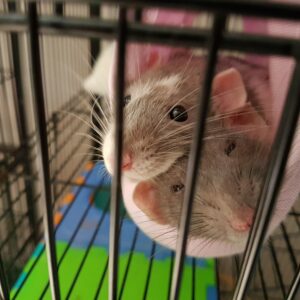
The rat requires a large, well-appointed cage.
One of the most important ways to ensure the well-being of your rat is to create a suitable environment for it. Only a cage that offers plenty of height is suitable for rats. Rats love to climb, run and hide!
For example, a cage housing two rats should be at least 80 cm high, 50 cm wide and 80 cm long. The space between the bars of the cage should be 0.8 cm or less to prevent them from falling through the bars.
A cage well adapted to rats contains a host of elements to stimulate them:
- Shelves, platforms, tunnels and ropes,
- Hiding places, at least one per rat,
- Interactive toys,
- Nest-making materials, such as pieces of paper or cardboard without ink,
- Food and water.
Before you bring rats home, the cage should already be set up. Setting up a cage for rats is a headache, especially the first time. However, the effort is worth it! Not only will the rats be happy to be in a cage that is well-suited for them, but you will also have the pleasure of watching them interact with their environment!
The rat needs to explore and develop relationships
Pet rats are very curious and intelligent animals. They were not born to live locked in their cage, no matter how large and equipped it may be. Rats need playtime outside their cage, ideally every day. The designated play area can be a room or an enclosure.
When a rat plays outside of its cage, be sure to:
- Secure the premises by hiding wall sockets and electrical wires,
- Monitor rats at all times.
Playtime is the perfect time to interact with them and develop a relationship with these little rodents. Although rats can be very affectionate, a relationship of trust must first be built with their owner before behaving like their best friend.
To build a relationship with your rat:
- Let him come to you,
- Reward his affectionate gestures with treats,
- Never force a rat to do something it doesn’t want to,
- Be patient!
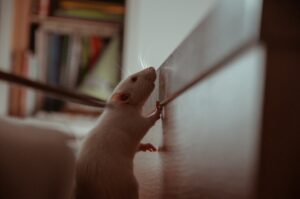
Rats are susceptible to respiratory health problems
Despite their short lifespan, rats are still susceptible to health problems. Pet rats are particularly susceptible to respiratory diseases.
Fortunately, there are some tips to prevent respiratory health problems in rats:
- Choose a shaving that is not made from soft wood and is not dusty,
- Avoid odorous products near your rats’ cage (candles, perfumes, household products),
- Avoid stressing your rats,
- Clean the cage to reduce urine odors.
Rats should be taken to the vet if they show symptoms such as breathing noises or sneezing. Since rats are considered “exotic animals”, they are not accepted in all veterinary clinics. Caring for an animal means first of all being prepared in case of illness: identifying qualified veterinarians and having a certain amount of money on hand.
Conclusion
Every pet rat owner should house their rats in groups, provide a stimulating cage, allow the rats to play daily, and monitor the health of their pets.
These four tips are just a general overview of the care needed for this rodent. The world of the domestic rat is even richer! Take your time before adopting rats and learn about their needs. Facebook groups on domestic rats and websites are there to help you in your adoption choice. Adopting rats also means being part of a community of people who are passionate about these rodents!
Article written by Maude Vaillancourt (guest blogging)
https://maudevaillancourt.wordpress.com/
More rat resources:
https://www.risavr.ca/conseil/les-besoins-du-rat-domestique/
https://www.omvq.qc.ca/conseils-pour-vos-animaux/rongeurs/18-12-le-rat.html
https://www.rspca.org.uk/adviceandwelfare/pets/rodents/rats
https://www.facebook.com/groups/293555771089184/
https://www.facebook.com/groups/RatonsQuebecois/
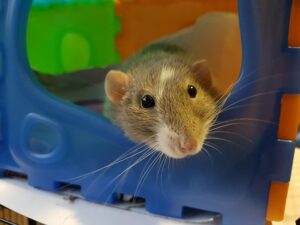


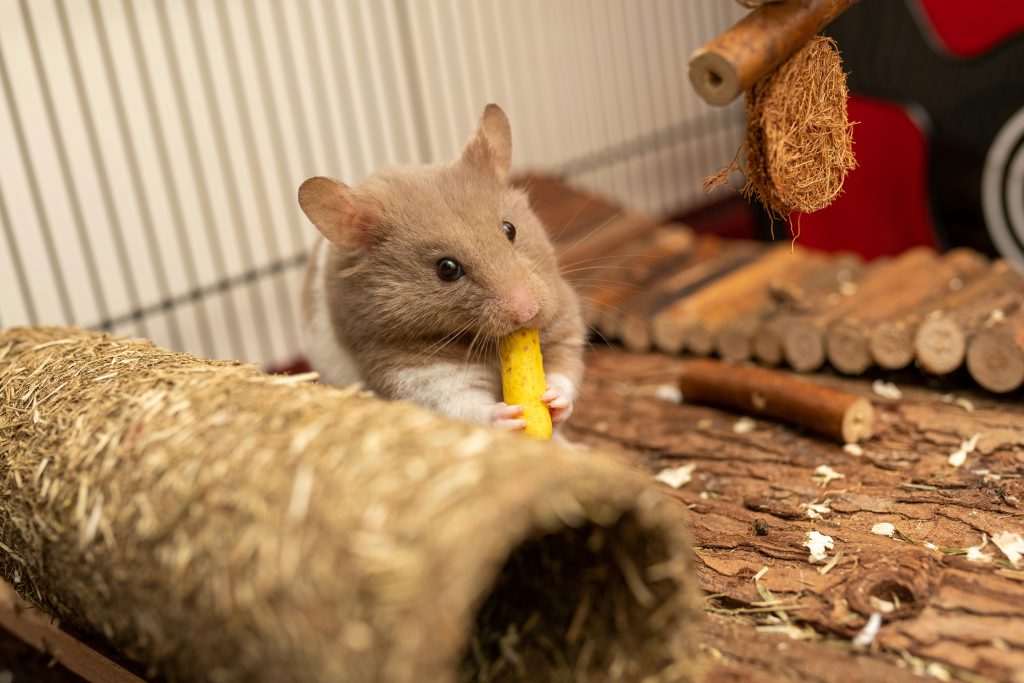

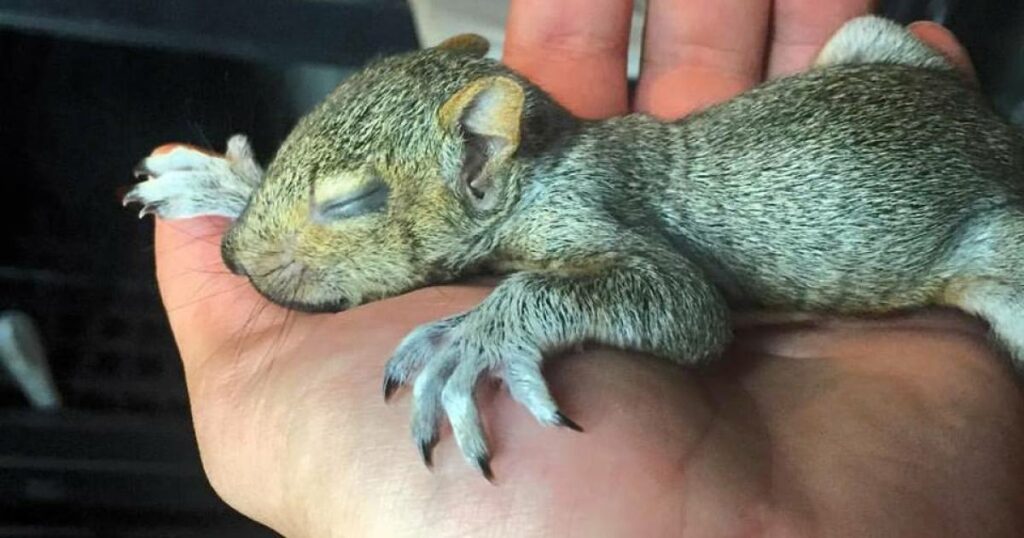
Leave a Reply